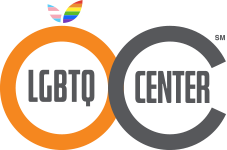Monkeypox Information (Last Updated: 10/12/22)

As of August 2022 the state of California has declared a state of emergency in response to the recent monkeypox outbreak in the United States.
Monkeypox is a rare disease caused by infection with the monkeypox virus. Monkeypox virus is part of the same family of viruses as variola virus, the virus that causes smallpox. Monkeypox symptoms are similar to smallpox symptoms, but milder, and monkeypox is rarely fatal. Monkeypox is not related to chickenpox.
Monkeypox was discovered in 1958 when two outbreaks of a pox-like disease occurred in colonies of monkeys kept for research. Despite being named “monkeypox,” the source of the disease remains unknown. However, African rodents and non-human primates (like monkeys) might harbor the virus and infect people.
The first human case of monkeypox was recorded in 1970. Prior to the 2022 outbreak, monkeypox had been reported in people in several central and western African countries. Previously, almost all monkeypox cases in people outside of Africa were linked to international travel to countries where the disease commonly occurs or through imported animals. These cases occurred on multiple continents.
Source: CDC
Why is this a concern for the LGBTQ community?
While anyone can get monkeypox, reported cases have found that 99% of patients with the virus are men and 95% are men who have sex with men (WHO). It is important to not only combat myths about monkeypox and our community, but to also provide the resources for those at high risk.
Monkeypox Vaccine Sites in Orange County
The Orange County Health Care Agency is now opened a limited amount of additional slots via https://myturn.ca.gov/ for both 1st and 2nd Jynneos (MonkeyPox vaccine) doses.
Jynneos vaccine clinics are scheduled to run every Wednesday and Friday in September, as well as October 5th and 7th.
The Jynneos clinic will continue to be held from 10am to 7pm on these days at the SSA Central Regional Office (2020 W. Walnut Street, Santa Ana 92703).
Appointments are for those considered high risk individuals and who self-attest to meeting the criteria outlined below:
Gay, bisexual, and other men (including cisgender and transgender men) who have sex with men (MSM) or transgender women who meet at least one of the following criteria:
Have been diagnosed with a bacterial sexually transmitted disease (e.g., chlamydia, gonorrhea, syphilis) in the past 3 months, OR
Have engaged in chemsex or group sex with other men, OR
Have had sex recently with anonymous male partners, OR
Have attended sex-on-premises venues (e.g., saunas, bathhouses, sex clubs), OR
Have engaged in survival and/or transactional sex, OR
Any man or trans person who has sex with men or trans persons
Any man or trans person who is taking or is eligible for HIV PrEP
Anyone living with HIV, particularly those with a CD4 count <350/mm3, an unsuppressed HIV viral load, or an opportunistic infection
Are part of other populations who are at high risk of monkeypox exposure, as identified through local epidemiological investigations. Among this group, persons who are living with HIV (particularly those with CD4 count <200/mm3 or an opportunistic infection) or other conditions that cause immunocompromise.
All those who are eligible can schedule an appointment on any of the available days below. Clinics are by appointment only.
CDC UPDATE (9/28/22)
Today, CDC is announcing expanded eligibility for monkeypox vaccination so that more people may receive the vaccine before they are exposed to the disease. Vaccination remains an important tool in preventing the spread of monkeypox, and this public health measure is known as pre-exposure prophylaxis, or PrEP.
Preliminary data from 32 states show that those who were eligible and did not receive the monkeypox vaccine were about 14 times more likely to become infected than those who did receive the monkeypox vaccine. For those vaccinated, protection was seen as early as two weeks after their first vaccine dose.


